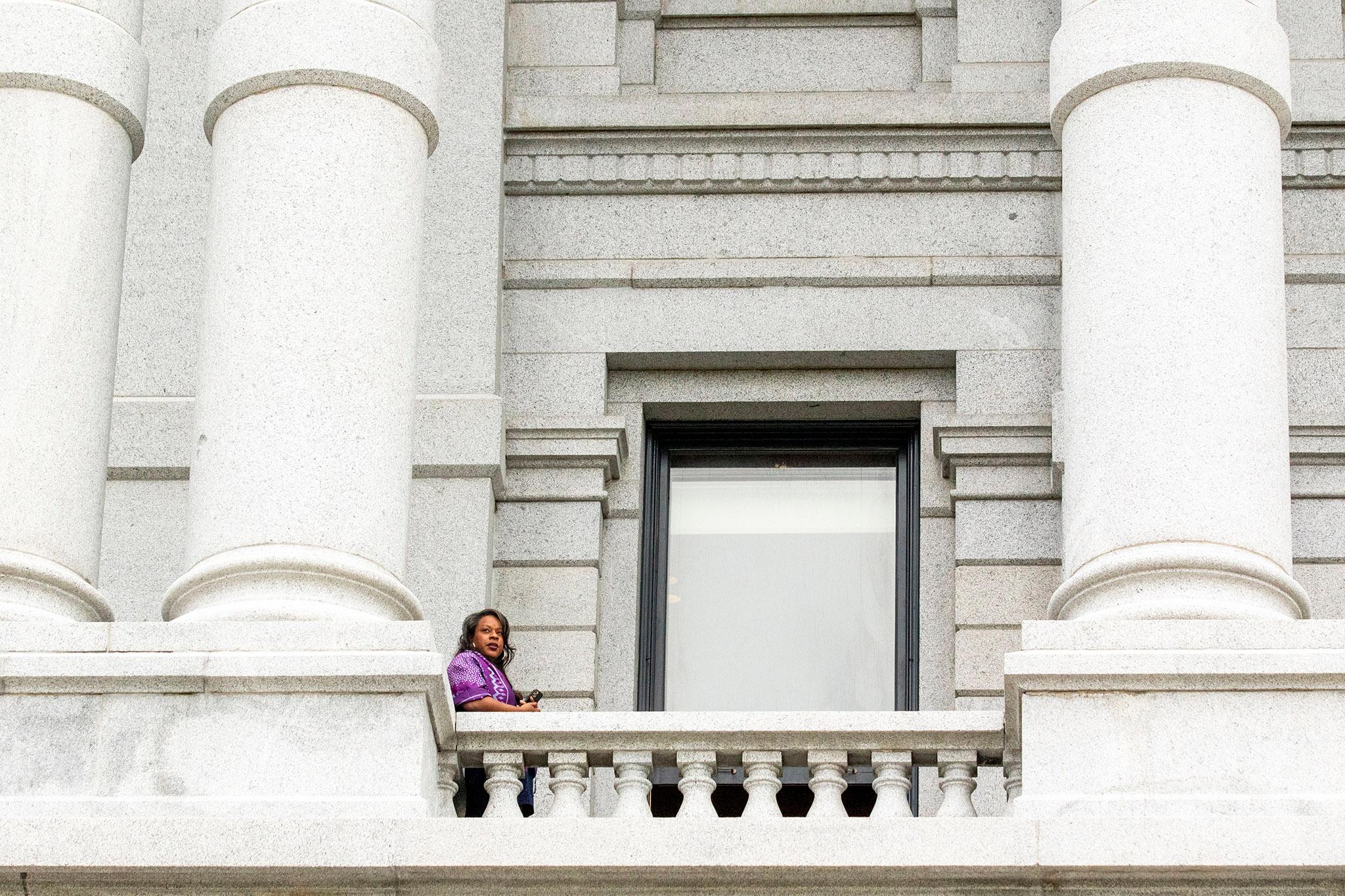Leslie Herod is currently a candidate for more than one office, and that may be in conflict with state law.
Or not, according to her campaign.
Herod is on the ballot this November for the House District 8 seat representing a section of north Denver, and she has filed paperwork to run for mayor of Denver next Spring.
According to Colorado Revised Statute 1-4-501(2), "No person is eligible to be a candidate for more than one office at one time."
Leslie Herod's campaign argues the "at one time" phrase means a candidate can't be on the same ballot.
The authors of the statute were "trying to stop anyone from having their name appear twice on the same ballot," said Mario Nicolais, Leslie Herod's campaign attorney. "This is a head fake from someone who's trying to throw a monkey wrench into Leslie's campaign."
Nicolais didn't say who specifically is trying throw a "monkey wrench" into the campaign, and no official complaint appears to have been filed.
But there's a counterpoint to that: back in 2018, Nikki Knoebel withdrew from the Routt County treasurer's race, because it conflicted with her run for mayor of Oak Creek, even though it would have been two different ballots. Knoebel said she made the decision following an opinion from the Colorado Secretary of State, which cited C.R.S. 1-4-501(2). The Routt County treasurer election was scheduled for November, and the Oak Creek mayor's race was scheduled for the following April, similar timelines to Herod's case.
"The timing of the separate April 3 Oak Creek mayor's race and my announcement to run for the Routt County treasurer places me in a short window where I am not in compliance with C.R.S. 1-4-501(2)," wrote Knoebel back in 2018.
Here's what a spokesperson for the Colorado Secretary of State sent Denverite: "Article XXVIII Section 2 (2) of the constitution defines a 'candidate' as anyone seeking election to state or local public office. Article XXVIII Section 2 (3) of the constitution prohibits a candidate from having two candidate committees open at the same time. But Denver's status as a home rule community is a complicating factor since Denver has its own laws related to campaign finance. We recommend you reach out to their office as well."
Neither Denver's city attorney nor the Clerk and Recorder provided an on the record comment for this story.
Denver has an ordinance that addresses multiple campaigns, 15-32(b), "A candidate shall have only one (1) candidate committee." But it's not clear if that applies to a candidate that has a state committee and a municipal committee.
"We looked into this question and determined that we are in compliance with the law," Herod said in an emailed statement Thursday morning after this story was published. "I have always put people over politics, and I will continue to do so as a candidate for mayor."
Herod is expected to win her race in House District 8 in November, against her Republican challenger, Hilleary Waters. The district is heavily Democratic, and, while it hasn't attracted a lot of money, Herod has outspent Waters 29 to 1.
"In running for both Colorado HD8 and Denver Mayor concurrently, what Rep. Herod is doing is technically legal," wrote Waters in a statement. "The offices are not on the same ballot. However, I don't believe this is the spirit of the law, CRS 1-4-501 (2). The constituents of HD8 deserve a person who really wants the job -- a full-time state representative, not one who will spend her time in office campaigning and accepting support for the Mayor's race in the spring. Fish or cut bait. HD8 shouldn't be a placeholder office -- a 'safety' date to the prom while you wait for a better option to come along. HD8 deserves better."
On Sept. 8, Herod filed paperwork with the Denver Clerk and Recorder's office, stating her intention to run for mayor of Denver, but didn't withdraw from her state legislative race.
Two weeks later, on Sept. 26, Herod's campaign sent out an email saying her mayoral campaign would get a disbursement from the city's new Fair Elections Fund, which uses taxpayer money to buttress city campaigns that qualify.
Finally, Herod's campaign said these aren't serious considerations, and they point to the full state statute, specifically C.R.S. 1-4-501(3): "The qualification of any candidate may be challenged by an eligible elector of the political subdivision within five days after the designated election official's statement is issued that certifies the candidate to the ballot."
That time, Nicolais said, has come and gone for the state November election. "If anyone was serious about this, they would've actually filed a complaint."
And for the Denver ballot, it's too soon to file a complaint about her candidacy, he said.
"If someone wants to file a complaint against her in January, after she's filed signatures and the Denver City Clerk certifies that ballot, they're welcome to. But she certainly won't be a candidate for House District 8 at that time either."
This story has been updated to include a statement from Herod.












